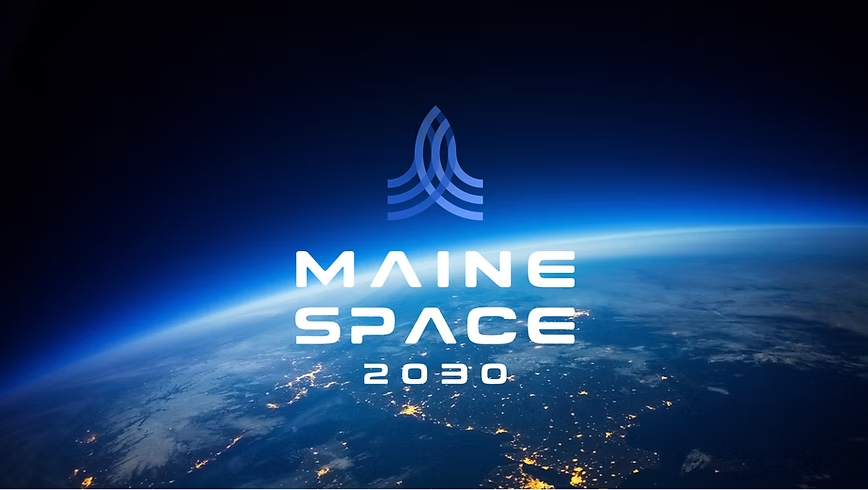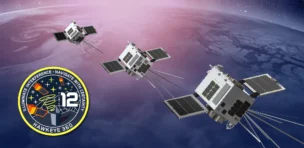Portland, ME—Maine may be better known for rocky coastlines than rockets, but the state is actively working to make itself a hub for the space industry and has already had some success encouraging space companies to put down roots among the lobstermen and loggers.
In 2022, the state created the Maine Space Corporation with funding from the state and the Maine Technology Institute. Its primary goal is establishing the Maine Space Complex, which will include three supporting business units to attract a wide variety of space companies to the state, offering capabilities in data analytics, R&D and innovation, and launch services.
“Maine is more than lobsters and blueberries. At the end of the day, there’s a lot to be had here in Maine for somebody that’s interested in participating in the space economy,” Mike Roughton, executive director of the Manufacturers Association of Maine, told Payload.
Building an economy: Although the Maine Space Corporation is in its infancy, it has already made headway in attracting space businesses to set up shop in the Pine Tree State.
Teledyne Technologies, a global business providing a range of hardware and services for satellite operators, has signed on as one of the first anchor tenants at Brunswick Landing, part of the Maine Space Complex. The company has agreed to invest in infrastructure to qualify and test space components, and will break ground on that next year, according to Jack Mills, director of business development for Teledyne’s space and defense business in the Americas.
For Teledyne, the benefits in Maine are readily apparent. “It’s two and a half hours to major airports like Boston, Logan Airport, so it’s not like you’re out in the middle of nowhere. It’s very easy to get to and [bring] people up [here… and] with all the universities that are in the area, there’s a good brain trust to be able to pull from,” Mills said.
The Maine Space Corporation is also working on a National Science Foundation proposal to make Maine a center for the rapid development of small satellites.
“The focus of our proposal is really to develop this region that includes New Hampshire into an international hub for reducing the development time for small satellites from an average of 24 to 48 months down to less than 12 months,” Terry Shehata, the interim executive director of the Maine Space Corporation, told Payload.
No simple task: Of course, there are challenges with building a sustainable space industry in Maine—first and foremost in attracting and keeping the right talent.
“It’s building the pipeline from within, but also from the outside, by recruiting families and entrepreneurs to come to Maine,” Shehata said. “We have a lot of students that went outside of the state in the aerospace industry because they didn’t have any opportunities here.”
The corporation is working with The University of Maine, The University of Southern Maine, and the Roux Institute, an R&D-focused hub of Northeastern University based in Portland, to align curricula with the state’s long-term space goals.
The state isn’t starting from scratch, however. A long history of shipbuilding has given Maine a strong manufacturing and engineering foundation, and the hope is to retrain workers to be proficient in space-based applications.
“We have a very deep and pretty broad infrastructure on component development, design innovation, machining to high levels of quality and tolerances in a way that will be very supportive of what is necessary from an industry supply chain perspective,” Roughton said.
Location, location: The state’s far-north setting makes it the perfect gateway to polar and sun-synchronous orbits, and two former military facilities are primed to support space businesses looking to get off the ground without spending big bucks.
- The former Naval Air Station in Brunswick, once the home of submarine hunting aircraft, has been repurposed into the Brunswick Landing technology hub and rocket test facility.
- The former Loring Air Force Base in Limestone, which served as the closest domestic Air Force base to Europe during the Cold War, has been turned into the Loring Commerce Center, which has buildings for offices, warehouses, and manufacturing facilities, as well as space for launch operations.
These facilities are now home to two launch companies: bluShift Aerospace, a local startup, and Promin Aerospace, a Ukrainian transplant.
bluShift Aerospace has used both facilities to support their small launch ambitions over the last few years. The company operates and tests its rocket engines at Brunswick Landing, and in 2021 bluShift launched its prototype Stardust rocket in Loring.
Promin Aerospace is a more recent addition to Maine’s growing collection of space companies. Founded in Dnipro, Ukraine in 2021, the company lost its ability to test its rockets after the Russian invasion. After shopping around for a new home, the company landed on Maine as the perfect location to continue operations.
“We were focusing on states with [their] own launch pads because we are a young company; it’s very challenging for us to build rockets in one place and bring [them] to test in another,” Promin’s chief business development officer Alexandra Gladyshevskaya told Payload. “It should be a state that would be strongly interested in attracting a new company, so Maine had everything.”




